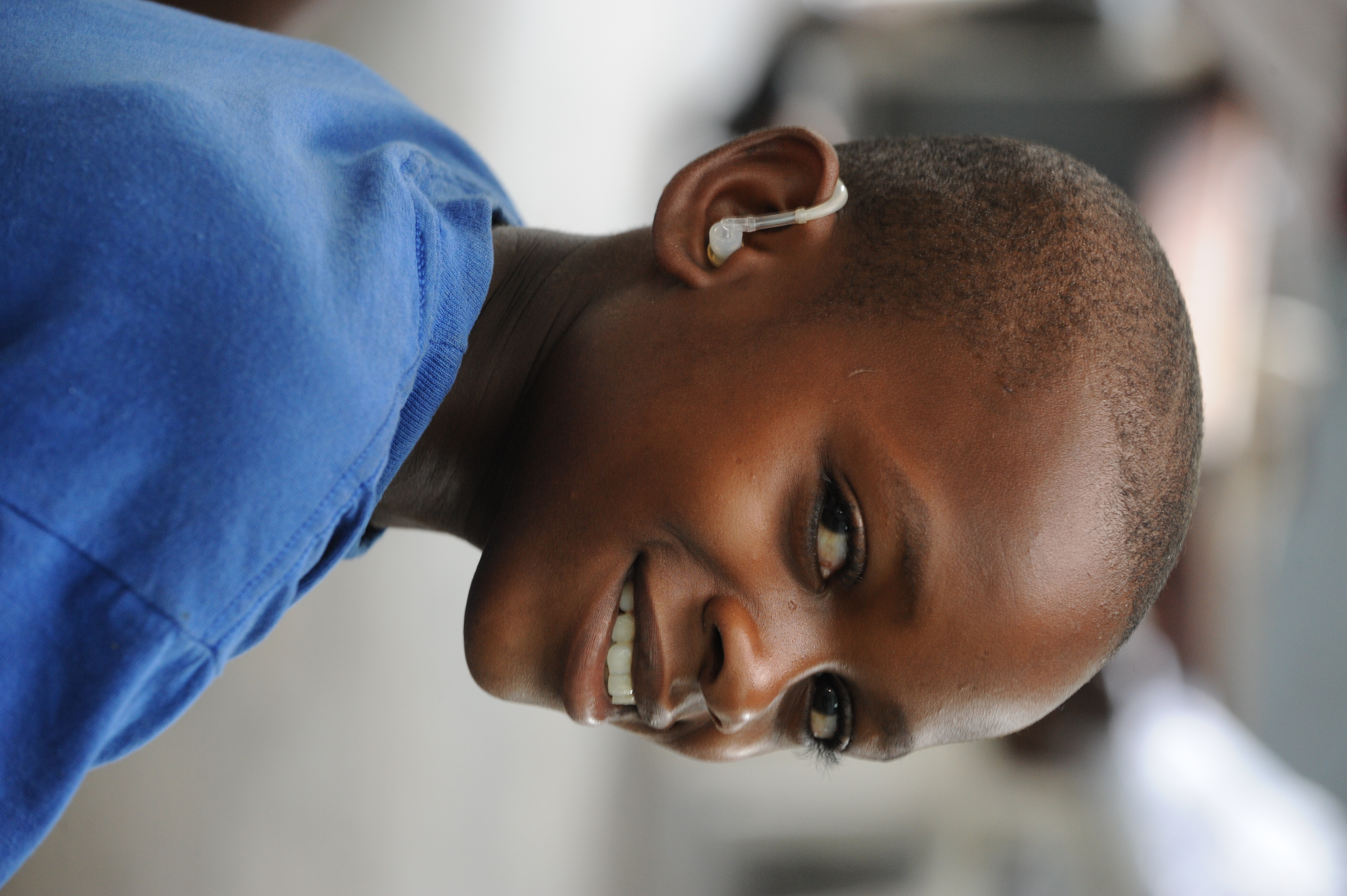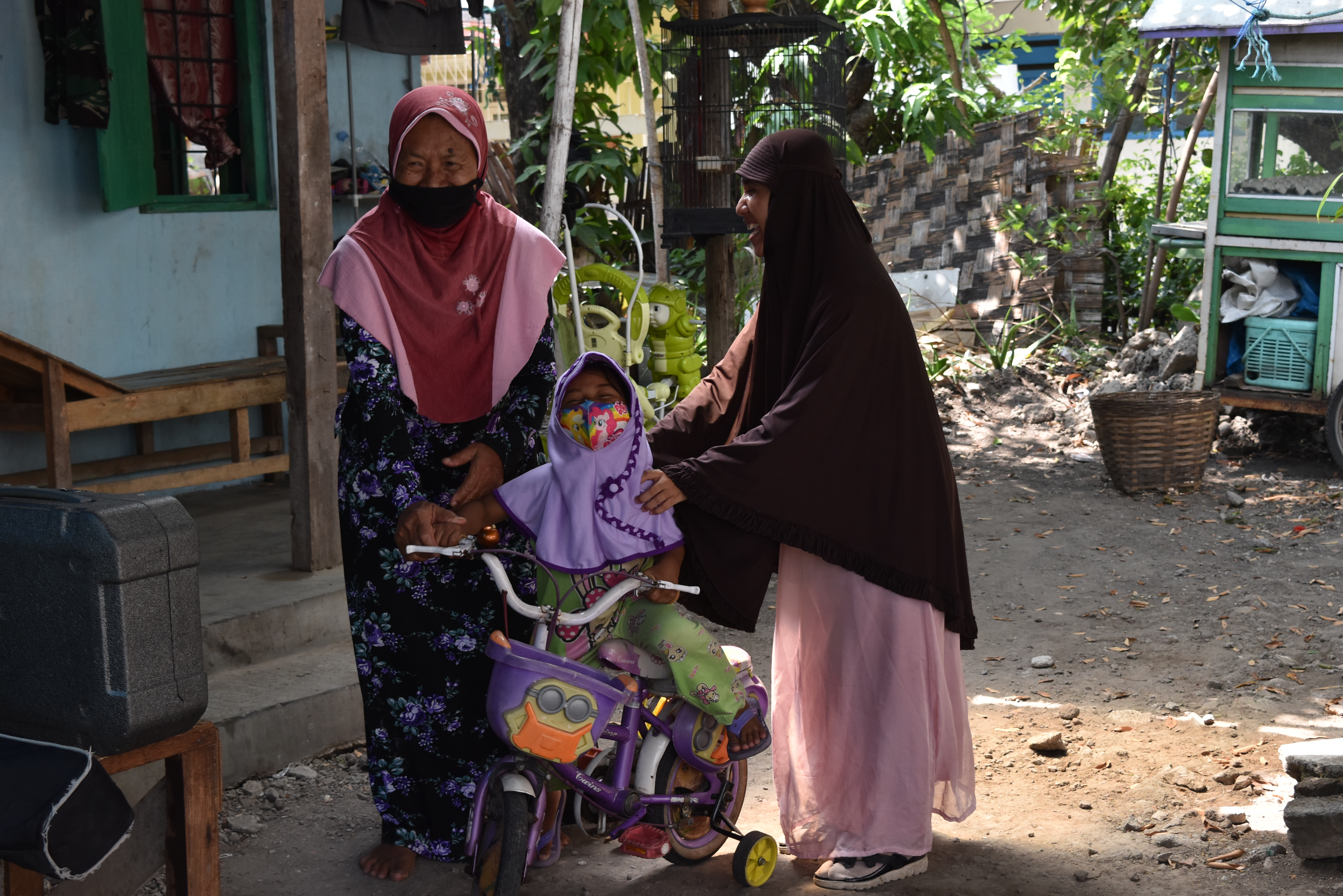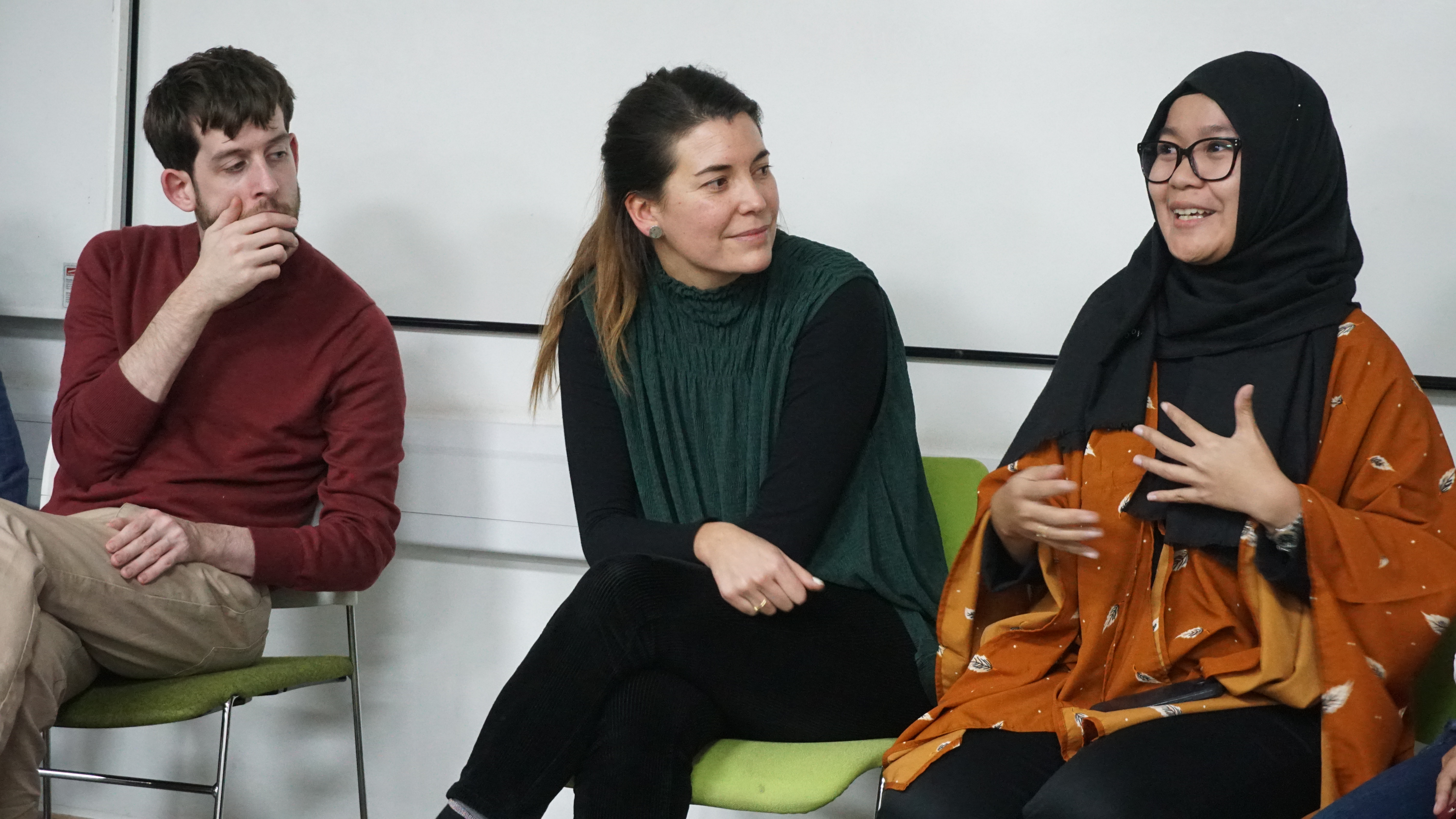Blog Posts
-
Assistive Technology: What is in a name?
GATEOct. 19, 2020GlobalThe World Health Organization (WHO) defines assistive technology as ‘the application of organized knowledge and skills related to assistive products, including systems and services.’ Assistive products are ‘any external product (including devices, equipment, instruments or software)…the primary purpose of which is to maintain or improve an individual’s functioning and independence, and thereby promote their well-being’.1 Put simply, assistive products are the products and assistive technology is the whole ecosystem that is needed for their safe and effective provision and use.
-
Disability, inclusion and cities: can COVID-19 trigger change?
Dr Ignacia Ossul Vermehren, Julian Walker, UCL, Development Planning Unit (DPU), Hawanatu Bangura, SLURC, Yirah O’Conteh, FEDURP, Nina Asterina, Kota Kita, Kesuma Anugerah Yanti, Kaki KotaOct. 1, 2020COVID-19 has exacerbated the disadvantages experienced by people with disabilities in low-income communities of the global South. Here, the authors explain how urban community organisations are offering effective short-term support and inspiring inclusive longer-term strategies.
-
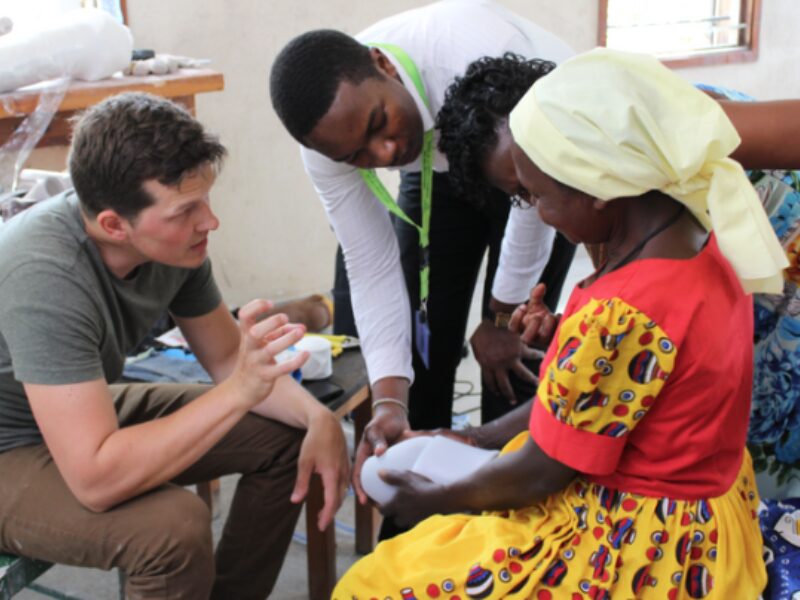
What is Assistive Tech, who is it for, and what does it enable?
Rhys WilliamsSept. 28, 2020What does Assistive Technology mean and which products are the key priority products.
-
The potential for Assistive Tech in Africa
Rhys Williams, Bethany KantenSept. 24, 2020A blog piece by Rhys Williams and Bethany Kanten that discusses the Assistive Tech Impact Fund.
-
Building the foundations for a thriving Assistive Tech innovation ecosystem
Bernard Chiira, Rhys Williams, Rosie Afia, Tamara GiltsoffSept. 8, 2020Together the ambition is to lift the lid on this exciting emerging tech sector, support its growth and demonstrate global leadership on assistive technology. In this article you will learn more about assistive technology (AT) and these four initiatives supporting the ecosystem. Around the world we have seen entrepreneurship and innovation ecosystems established to create and support the finTech, agriculture Tech (agriTech), cleanTech, education Tech (edTech), and healthTech sectors- with many more emerging tech sectors each year. In LMICs, these technology sectors have been able to grow due to a large yet underserved market opportunity, and thriving and supportive ecosystems made up of early stage investors and angel networks, tech hubs and media platforms, academic institutions and policies to support innovation, as well as a steady increase in deployed capital.
-
Assistive Technology at a glance
Rhys WilliamsSept. 4, 2020When we use the term Assistive Technology (AT), we usually think about products like wheelchairs and walking sticks, hearing aids and eye-glasses, prosthetics and digital or mobile devices. However, the World Health Organisation (WHO) suggests a broad definition of assistive technology which emphasises services (diagnostics, fitting, ‘on-demand’ assistance), systems (infrastructure, processes), and products (eyeglasses, hearing aids, mobility aids).
-
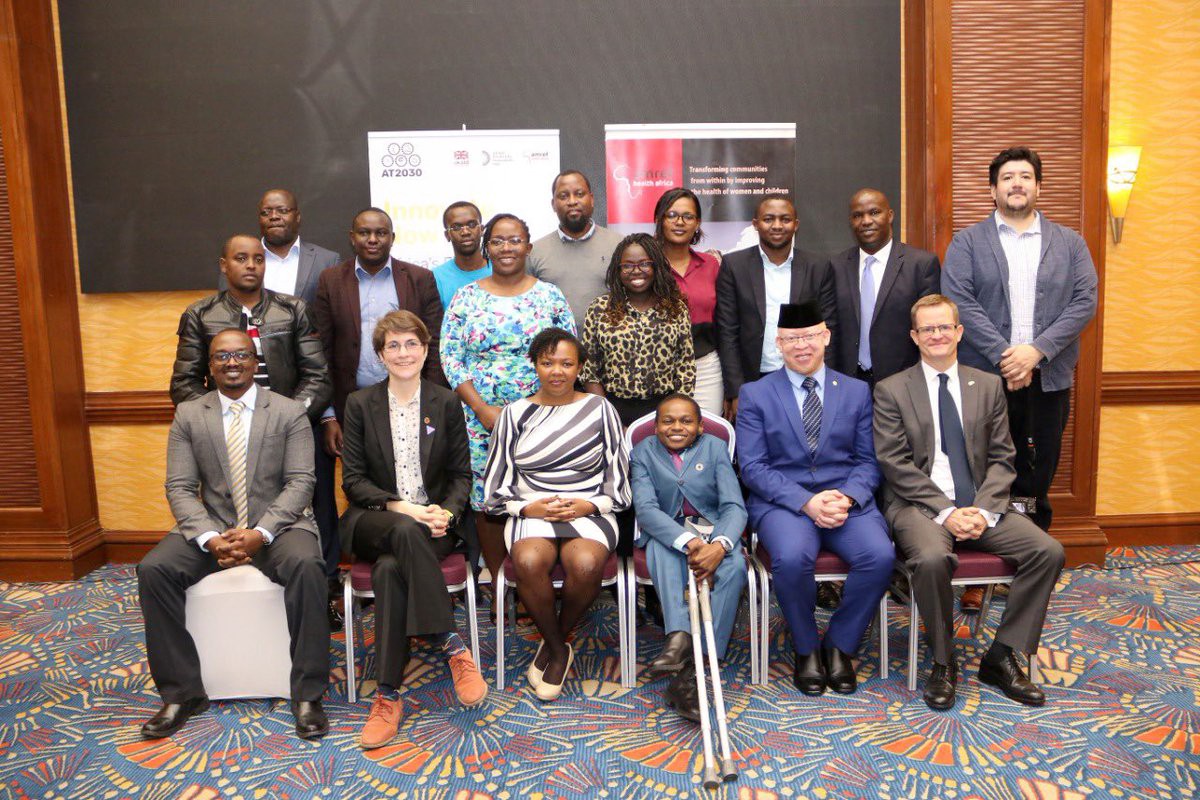
Marking 4 years of the Global Disability Innovation Hub
Bernard ChiiraSept. 3, 2020Bernard Chiira reflects on the 4 years of GDI Hub and the role in promoting the AT innovation ecosystem as part of AT2030.
-
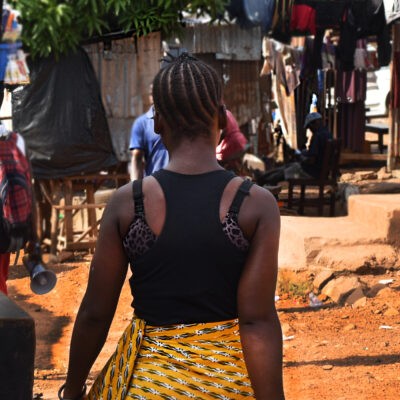
Gender and disability in informal settlements during COVID-19: What we have learnt so far
Dr Ignacia Ossul VermehrenJune 30, 2020Sierra Leone, Indonesia, ChileOn Tuesday 11th February, we held an event on The Politics of Making Disability Visible in Community-led Urban Research as part of the Dialogues in Development series at The Bartlett Developing and Planning Unit (UCL). The aim of the event was to share reflections and learnings from the action-research project "Community-led solution: Assistive Technologies in Informal Settlements– an ongoing research project in four low-income urban communities: two in Freetown, Sierra Leone and two in Banjarmasin, Indonesia. Dr Ignacia Ossul Vermehren discussed gender and disability in informal settlements during COVID-19. and sheds a light on what we've learnt so far.
-
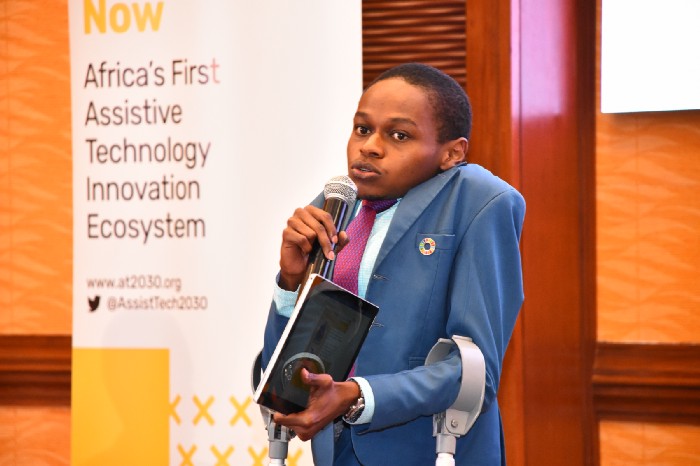
Celebrating Inspirational Entrepreneurs Building Tech that Matters for Africa
Bernard Chiira, AMREF Health AfricaMay 13, 2020GlobalBernard presents an overview of the innovations and teams that were part of the first cohort of Innovate Now, Africa's first Assistive Tech Accelerator.
-
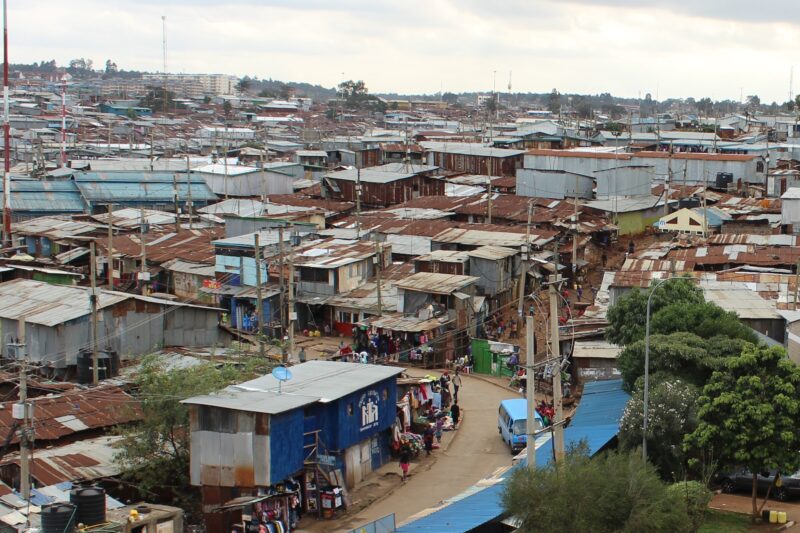
Opportunities and challenges for disability inclusion during the COVID-19 pandemic
Dr Giulia Barbareschi, Mikaela Patrick, Global Disability Innovation HubApril 15, 2020To ensure society continues to become more accessible beyond COVID-19 we need to integrate the voices of disabled people in the design and development of policy, technology and infrastructure. Dr Giulia Barbareschi and Mikaela Patrick discuss the opportunities and challenges.
-
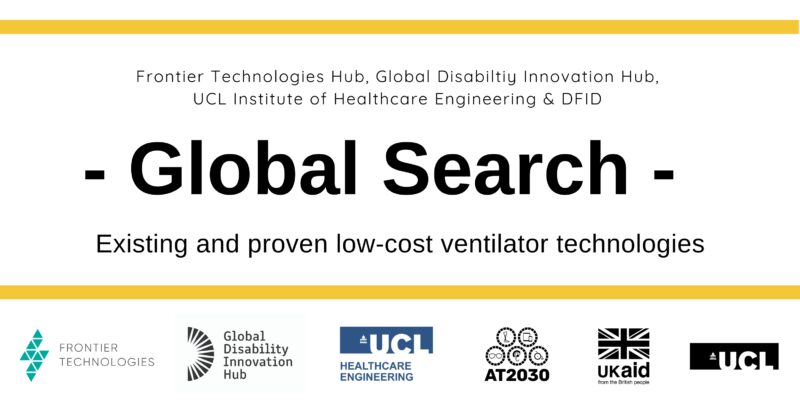
COVID-19 response: using Assistive Technology learnings to seek emerging market ventilation solutions
Global Disability Innovation HubMarch 19, 2020Louise writes on how mimicking the learnings of the AT2030 programme and working across multi-disciplinary networks, we can bridge sectors and rapidly share expertise to catapult innovations through the product development cycle in the context of COVID-19.
-
Opportunities and challenges for disability inclusion during the COVID-19 pandemic
Mikaela Patrick, Dr Giulia BarbareschiMarch 15, 2020Measures implemented by governments worldwide in response to the escalation of the COVID-19 global pandemic have had a significant impact on everyone. Lockdown and physical distancing policies have led many people to spend the majority of their time at home, only leaving the house for basic essentials and relying on digital infrastructure and delivery services for work, learning, socialising and receiving supplies more than ever before. However, many people with disabilities might be affected by some of these changes in unique and unexpected ways, both positively and negatively.
-
The Politics of Making Disability Visible in Community-led Urban Research
Development Planning Unit (DPU), Dr Ignacia Ossul VermehrenMarch 3, 2020Ignacia, research fellow working with the Build Capacity and Participation subprogramme presents a summary of the event organised with AT2030 partners.
-
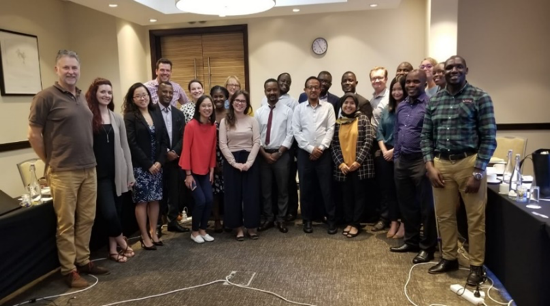
Understanding the Assistive Technology Landscape in 7 African Countries
Clinton Health Access Initiative, Novia AfdhilaDec. 9, 2019On November 5th, 2019, representatives from seven countries convened in Johannesburg, South Africa to discuss the rollout and initial findings from the Assistive Technology Country Capacity Assessments (CCA). This included the focal persons from Ethiopia, Liberia, Malawi, Nigeria, Rwanda, Sierra Leone, and Uganda who are carrying out the CCA in partnership with government ministries.
-
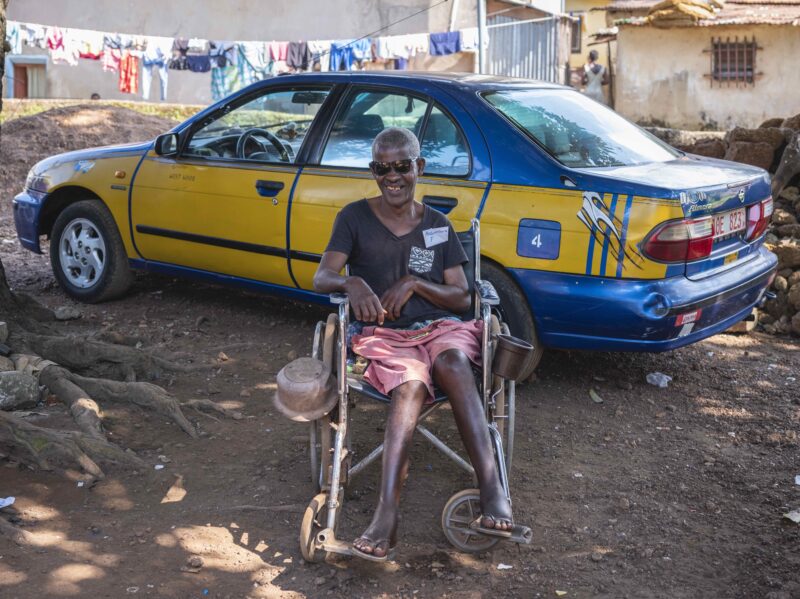
Celebrating International Disability Day in Sierra Leone
Vicki Austin, Global Disability Innovation HubDec. 4, 2019Vicki shares her reflections of her experience in Freetown to celebrate International Disability Day (as it is called in Sierra Leone) with the communities for the first time.
-
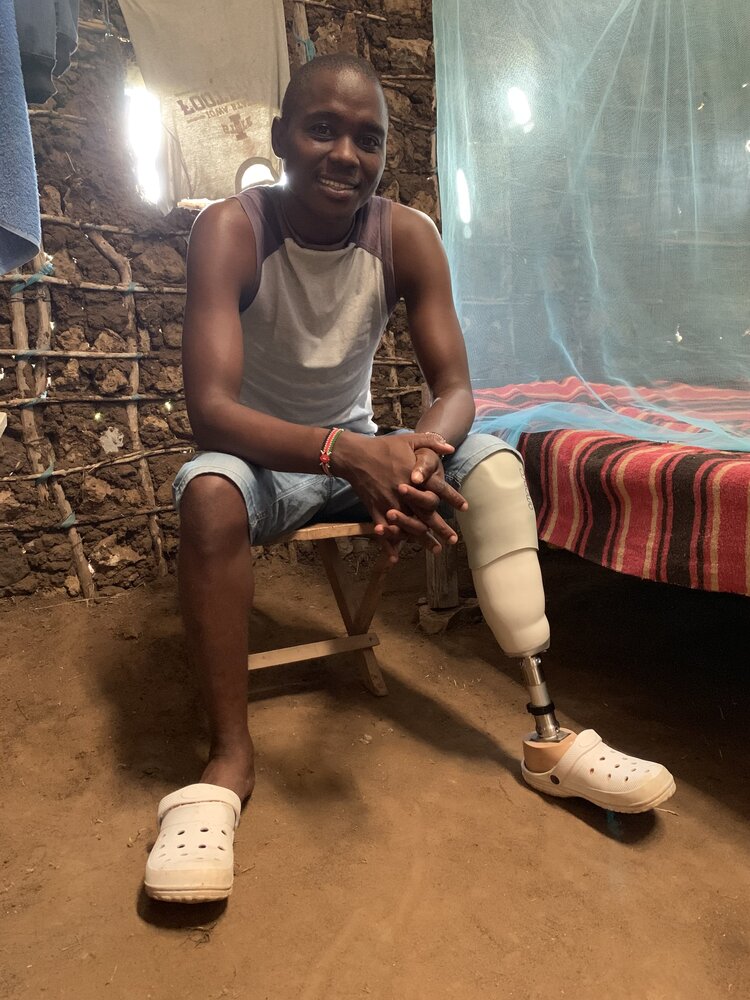
How a school football game changed Arnold's life
Ines Amri, Amparo ProstheticsDec. 2, 2019Ines writes about Arnold and his experience with Amparo's Confidence socket.
-
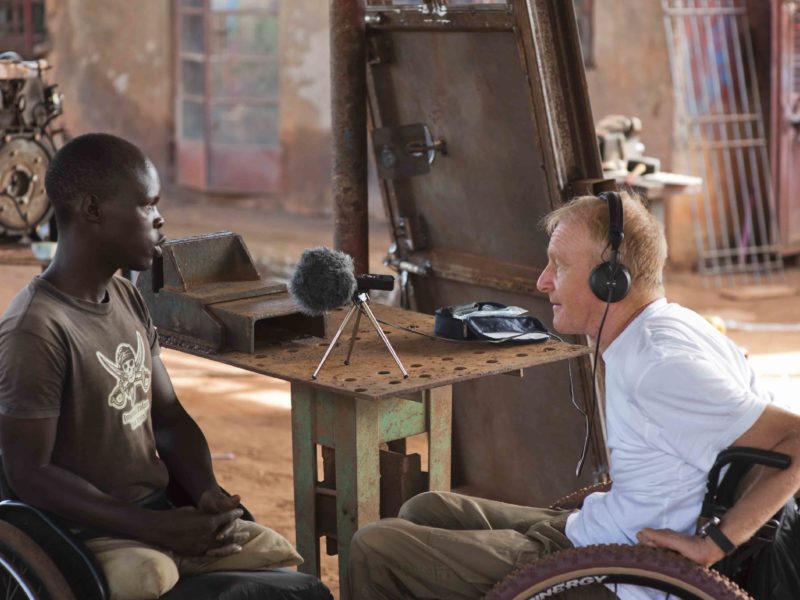
Assistive Technology Changed My Life
Motivation, David ConstantineOct. 18, 2019David, Founder and Director of Motivation discusses the impact of assistive technology in his life and his work in the AT sector.
-
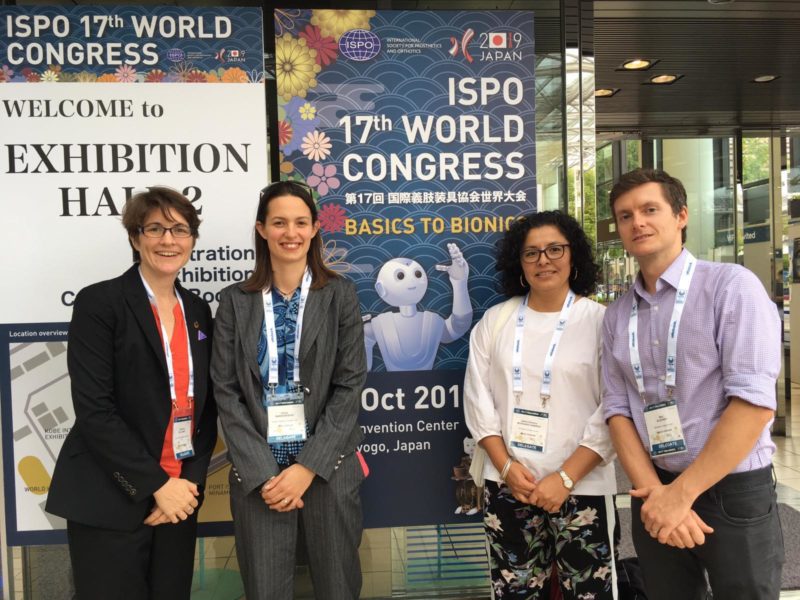
ISPO Congress Summary
Dr Giulia Barbareschi, Global Disability Innovation HubOct. 16, 2019Giulia presents an overview of the research presented at the ISPO conference in Japan that included the Learnings from the AT2030 Programme for Service Delivery in LMIC.
-
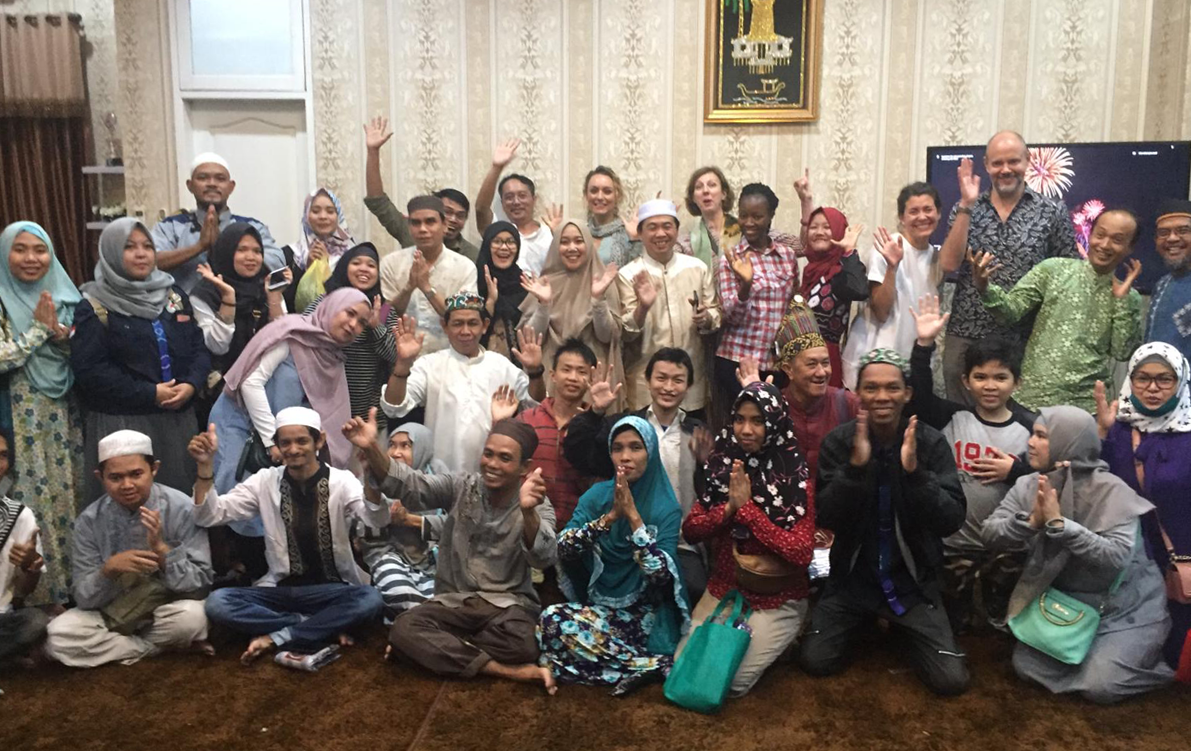
Life Changing Assistive Technology for All in Freetown and Banjarmasin
Sierra Leone Urban Research Centre, Hawanatu BanguraOct. 6, 2019Hawanatu gives an overview of a two-week workshop held in Banjarmasin in May 2019 with a team from UCL (UK), Kota Kita and Kaki Kota (Indonesia), and SLURC (Sierra Leone) as part of the project. The workshop started with site visits to the two communities (Pelambuan and Kelayan) in Banjarmasin where the AT2030 would be implemented. Participants then introduced useful presentations on the wider AT2030 project, disability, AT and informality between the two countries (Indonesia and Sierra Leone).
-
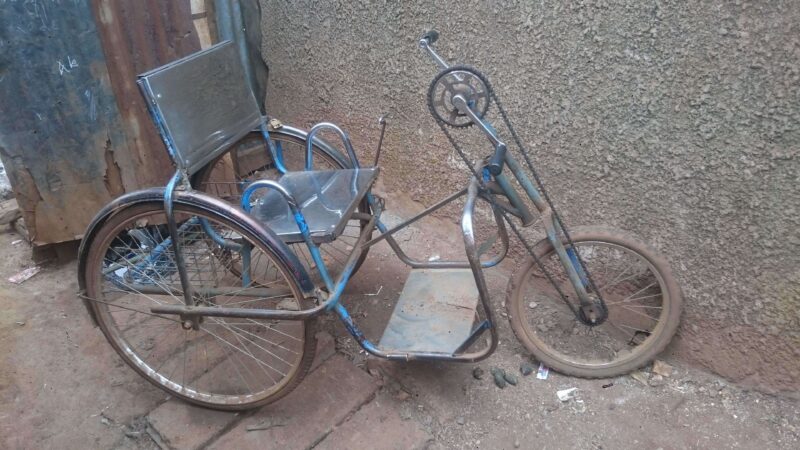
Reflections on the challenges that people with disabilities face in Kibera, Nairobi
Dr Ben Oldfrey, Global Disability Innovation HubAug. 7, 2019Ben presents the work by GDI Hub and the University of Nairobi taht conducted a study, interviewing wheelchair users living in Kibera – an informal settlement found in Nairobi, Kenya. The study was part of a wider project with the aim of learning how people with disabilities use technology in their everyday lives and understanding the barriers people with disabilities (PWDs) face in various environments.
Previous PageNext Page
